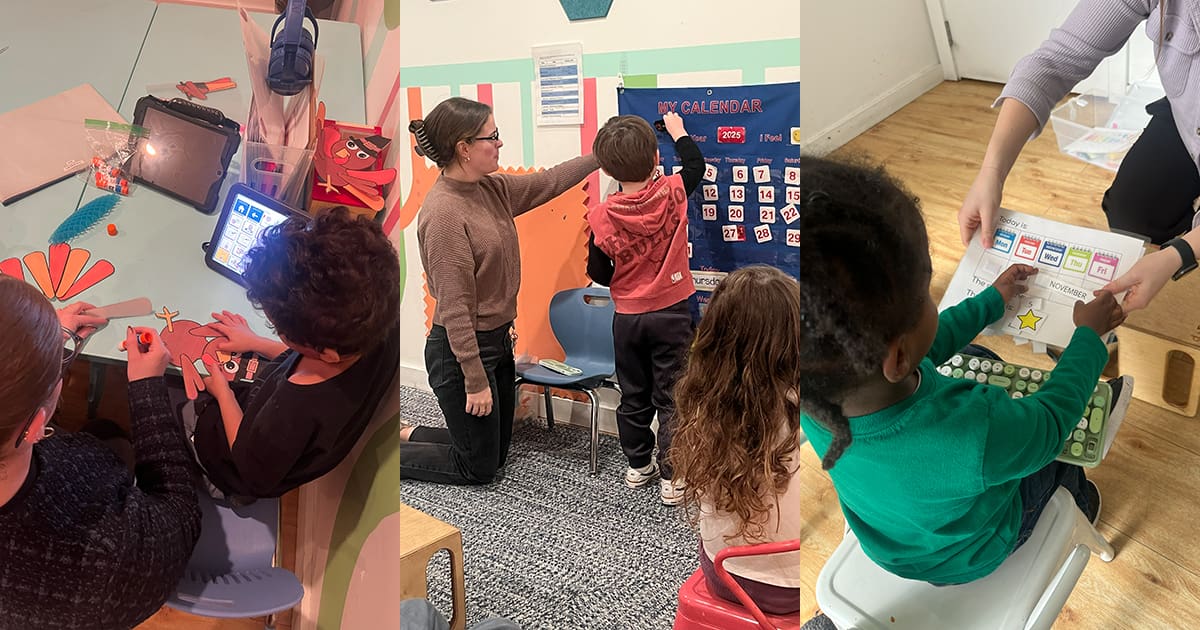Share this Post

Speech and language development plays a critical role in a child’s ability to communicate, learn, and build relationships. For children who need speech therapy, parents often have two primary options: school-based speech therapy or a comprehensive therapeutic program like CST Academy. While both approaches offer valuable support, they differ in structure, frequency, and level of individualized care.
Understanding the differences between these two options can help parents make the best choice for their child’s speech and language needs.
Understanding School-Based Speech Therapy
Many children receive speech therapy through their school district as part of their Individualized Education Program (IEP) or through Response to Intervention (RTI) services. These programs are designed to provide support in an academic setting, often at no cost to families.
How School-Based Speech Therapy Works
- A speech-language pathologist (SLP) evaluates a child’s communication skills to determine eligibility for services.
- Therapy is typically provided in a small group setting or through classroom-based interventions.
- Sessions are scheduled during the school day, usually once or twice per week.
- Therapy focuses on academic-based communication goals, such as improving speech clarity for participation in class.
Benefits of School-Based Speech Therapy
- Free or low-cost services provided through the school district.
- Therapy is built into the child’s school schedule, minimizing disruptions.
- Children receive support in an environment where they need communication skills the most—during academic and social interactions.
Limitations of School-Based Speech Therapy
While school-based speech therapy provides critical support, it may not always meet the full needs of a child, especially if they require more frequent or intensive therapy. Some common challenges include:
- Limited session frequency – Many children receive therapy only once or twice per week, often in short sessions of 20-30 minutes.
- Group-based instruction – Therapy often occurs in small groups rather than one-on-one, limiting individualized attention.
- Academic focus – School therapy prioritizes speech and language skills that impact academic performance, which may not address all communication needs.
- Longer wait times for evaluations and services – Due to demand, it may take months to receive an evaluation and begin therapy through the school.
Understanding Speech Therapy in a Therapeutic Program
Therapeutic speech programs, like those at CST Academy, offer specialized, intensive therapy in a structured setting designed to support the whole child. These programs provide speech therapy in a clinic-based or multidisciplinary environment where children receive highly individualized care.
How Therapeutic Speech Therapy Works
- A comprehensive evaluation identifies all aspects of a child’s communication needs.
- Therapy sessions are often one-on-one or in small, focused groups to ensure personalized attention.
- Children receive therapy multiple times per week, allowing for faster progress.
- Treatment plans address all areas of speech and language, including articulation, fluency, social communication, and expressive/receptive language.
- Sessions take place in a structured, sensory-friendly environment tailored to a child’s developmental needs.
Benefits of a Therapeutic Speech Program
Therapeutic speech programs offer a higher level of individualized care and a more immersive experience than school-based services. Some key benefits include:
- More frequent therapy sessions – Children often receive therapy multiple times per week, leading to faster progress.
- One-on-one and small-group instruction – Allows therapists to tailor therapy to each child’s specific challenges and strengths.
- A comprehensive approach – Therapy focuses on speech development for academic, social, and daily life communication.
- Multidisciplinary support – Children may receive speech therapy alongside occupational therapy, ABA therapy, or physical therapy for a well-rounded approach.
- Fewer restrictions on eligibility – Therapy is available to any child who needs it, without the limitations of school-based services.
Limitations of a Therapeutic Speech Program
- May require out-of-pocket costs if not covered by insurance. However, many families find the investment worthwhile due to the high level of personalized care.
- Takes place outside of the school day, requiring families to coordinate scheduling.
Which Option is Best for Your Child?
Every child has unique needs, and the best speech therapy option depends on several factors, including the severity of speech challenges, therapy goals, and the level of support needed.
A School-Based Speech Program May Be Best If:
- Your child qualifies for speech therapy through their school’s IEP or RTI process.
- They need basic support for articulation, language, or fluency but do not require intensive intervention.
- You are looking for free or low-cost therapy as part of their educational plan.
- Your child can make progress with infrequent, group-based therapy sessions.
A Therapeutic Speech Program May Be Best If:
- Your child needs more frequent, individualized therapy to make significant progress.
- They have multiple areas of need, such as sensory processing challenges, social communication difficulties, or motor delays.
- They require therapy that goes beyond an academic setting, focusing on communication in all aspects of life.
- You want a comprehensive, multidisciplinary approach that integrates other therapies, such as occupational or ABA therapy.
- Your child is on a therapy waitlist at school and needs immediate support.
Combining Both Approaches for Maximum Support
In some cases, families choose to combine school-based speech therapy with a therapeutic program for the best of both worlds. School-based therapy provides consistent support within the classroom environment, while a therapeutic program offers higher-intensity interventions that accelerate progress.
Many parents find that a multilayered approach provides the best outcomes, especially for children with significant speech and language delays.
How CST Academy Can Help
At CST Academy, we provide individualized, research-based speech therapy designed to meet the unique needs of every child. Our experienced speech-language pathologists create customized treatment plans that help children develop the confidence and communication skills they need for success.
Why Families Choose CST Academy for Speech Therapy
- Personalized treatment plans designed for each child’s unique needs
- One-on-one and small-group therapy for individualized attention
- Collaboration with occupational, ABA, and physical therapists for a multidisciplinary approach
- A structured, play-based learning environment that makes therapy fun and engaging
- Flexible scheduling options to fit your family’s needs
If you are unsure about which speech therapy option is best for your child, we are happy to discuss their needs and guide you toward the most effective solution.
Contact CST Academy today to learn more about our speech therapy programs and how we can help your child reach their full communication potential.
Discover Our Pediatric Therapy & Autism Care
ABA Therapy
Support for children with autism.
Autism Evaluation
Expert assessments to identify child needs.
Pediatric Therapy Services
Speech, Occupational, Feeding, and Physical Therapy.
Therapeutic Preschool
A classroom environment designed for early learners with unique needs.

Find the Best Care for Your Child




